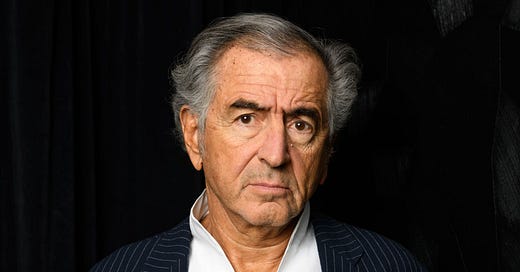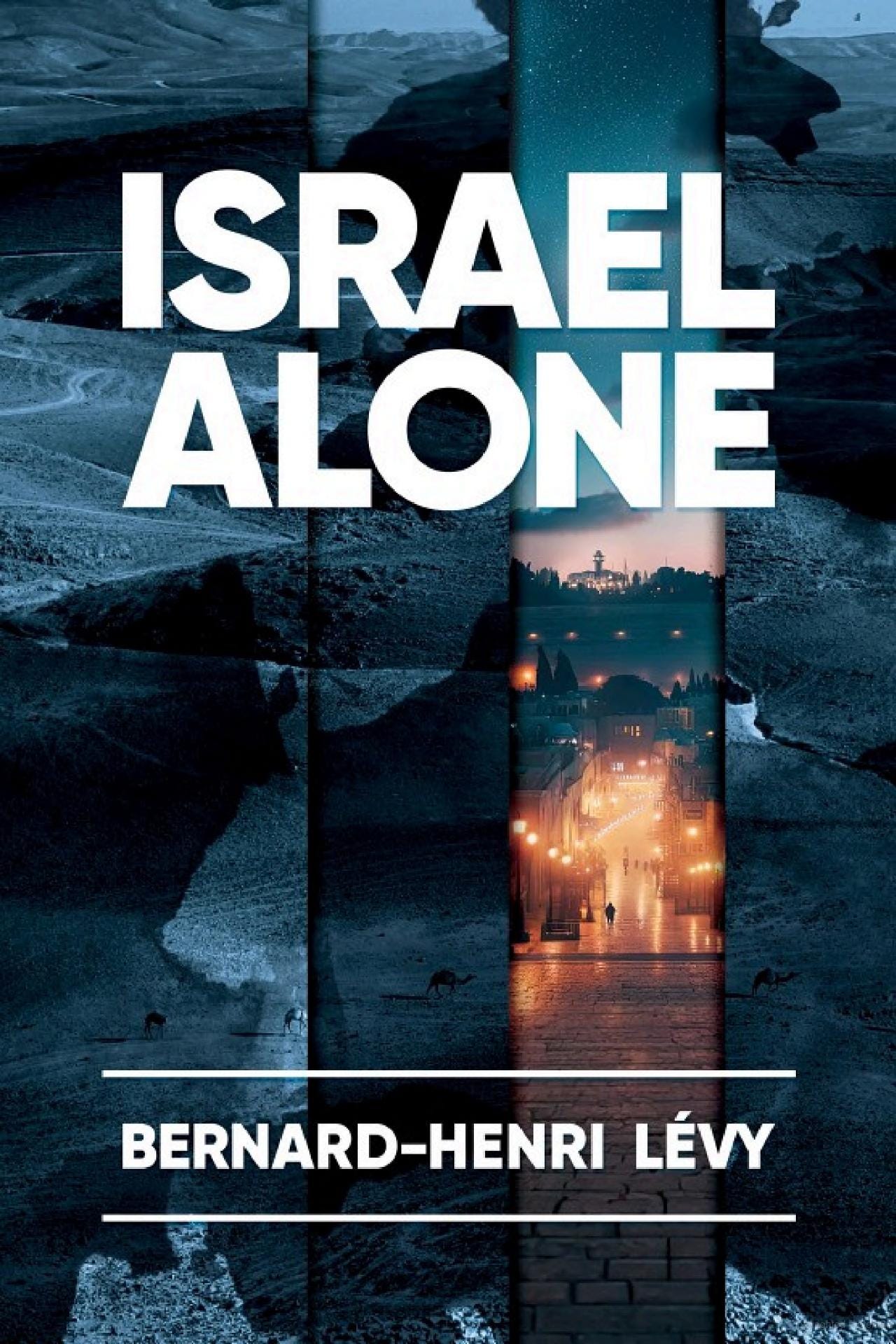
The Free Press

A prominent trade publication refused to advertise a new book because it feared the word Israel in its title might upset its audience, The Free Press has learned.
This month Melanie Notkin, an author and communications consultant, tried to place an advertisement for Bernard-Henri Lévy’s new book, Israel Alone, in Shelf Awareness, a trade publication for publishing professionals including booksellers and librarians. The book, published in the U.S. last month by Post Hill Press imprint Wicked Son, is about Lévy’s experiences in Israel post–October 7, 2023.
On October 9, a representative from Shelf Awareness told Notkin her ad was approved for the price of $2,300, and would run on November 1 in its weekly newsletter, which is sent to more than 600,000 readers.
But two days later, Matt Baldacci, the publisher for Shelf Awareness, emailed Notkin to tell her the magazine was “canceling” it. When Notkin asked why, Baldacci agreed to speak to her over the phone that same day.
Listen to Baldacci and Notkin’s conversation on the call here:
In audio of that phone call exclusively obtained by The Free Press, Baldacci told Notkin the ad was rejected because the book would cause too much controversy. “Why did we cancel the ad?” Baldacci said to Notkin. “We have a responsibility to our 250 independent bookstore partners, and it’s our feeling that running that ad in their publications, for some of those partners, is going to cause them trouble that they haven’t asked for and don’t wish to have.”
“For certain stores, an ad for Israel Alone will cause the employees to go to the management and say, ‘We don’t support this. Why are you doing this?’ Now we can debate, you know, whether they’re right or they’re wrong, but the point is, it will happen.”
He went on to note that “customers will complain,” too. “We can debate about the rightness or the wrongness of those customers complaining, but the fact is that they will, and our partners trust us to protect them from those kinds of situations. So we had to make the difficult decision not to accept the ad.” Baldacci did not reply to several requests via phone and email for comment from The Free Press.
Notkin told The Free Press she “was in shock” after the phone call. “And I thought to myself, you know, they don’t fire employees for antisemitism. Instead, they cancel the ad with Israel in the title. If the book were titled Black Alone, Gay Alone, Palestinian Alone, I’m hedging this wouldn’t have been a problem.”
“If the word Israel is too hot a potato to have on the pages of your newsletter as a paid ad, when does it become the word Jew?” she continued. “When does it become a Jewish author? When does it become anything to do with anybody Jewish in America? When students say ‘We don’t want Zionists on our campus,’ when a publication says ‘We don’t want an ad that says Israel on its title in our publication,’ what does this say about the direction we’re headed in America?”
Martin Peretz, the former publisher and editor of The New Republic, who had intended to pay for the ad and hired Notkin to place it, said it was “a scandal and a travesty that anyone in the book trade should reject” it. Peretz said he had wanted to support the work of his friend Lévy, who is “one of the most distinguished and accomplished intellectuals in the West.” Lévy, 75, is the author of more than 45 books, including the 2006 New York Times bestseller American Vertigo: Traveling America in the Footsteps of Tocqueville.
Founded in June 2005, Shelf Awareness provides “essential information” to “a range of people in the industry—booksellers, librarians, book buyers at nontraditional stores, members of the media, marketers, salespeople, publishers, and others,” according to its website. The outlet produces two free newsletters: a daily news blast for 37,000 publishing professionals, and a weekly list of new and recommended titles aimed at 645,000 general readers. The publication influences which books get the most attention and marketing at the country’s most important bookstores. Shelf Awareness boasts on its website that “the buyers at B&N”—meaning Barnes & Noble—“and Amazon read us daily.”
The rejection of an ad for a pro-Israel book is the latest instance in a worrying trend of erasing Jewish writers and thinkers from intellectual spaces. Last month, the New York State Writers Institute canceled a literary panel at the University of Albany because other authors refused to share the stage with a “Zionist” moderator. In August, a Brooklyn bookstore canceled a Jewish author’s book event because the rabbi he was scheduled to speak with was a “Zionist.”
Yossi Klein Halevi, a senior fellow at the Shalom Hartman Institute and an Israeli American author of several books on Israel, including the New York Times bestseller Letters to My Palestinian Neighbor, told me the cancellation of Lévy’s ad is yet another example of a “totalitarian form of censorship.”
“There is an atmosphere of intimidation which is self-perpetuating because someone fears that intimidation will be applied. Then that opens the way to self-intimidation, and we know from totalitarian societies that the most powerful form of censorship is self-censorship,” Halevi said.
Of Jews in Western society today, he added: “We’re being pushed back in the ghetto.”
Francesca Block is a reporter for The Free Press. Read her piece “Israel-Bashing on the Agenda for National Teachers Union” and follow her on X @FrancescaABlock.
To support more of our work, subscribe to The Free Press today:





